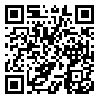Articles accepted at the time of publication
Back to the articles list |
Back to browse issues page
1- Urmia University , zhila.kiyanfar@gmail.com
2- Urmia University
2- Urmia University
Abstract: (2401 Views)
In spite of the potential merit of technology-enhanced education in offering an innovative educational game in the arena of English teaching and learning, they have not garnered much momentum in terms of practical research, particularly in ELT speaking domain and their potential role in the Covid-19 pandemic and post-pandemic eras. This constitutes a substantial gap in the extant corpus of literature, which will be addressed in the current study by exploring the short- and long-term impacts of immersive virtual reality and space team ESL games on the speaking abilities of Iranian EFL learners. To this light, 54 basic EFL students from private language institutions in Urmia were selected through convenience sampling and an intact group design. Three classes were randomly exposed to two treatments, encompassing virtual reality, space team, and a control group receiving traditional instruction. The participants were pre-tested with the IELTS speaking test before receiving the treatment, and the same instrument was utilized for post-tests and delayed post-tests. In contrast to the traditional group, the results demonstrated that both immersive virtual reality and space team games enhanced students' short- and long-term oral performance. The findings of this study could be well-regarded as an important proposal for considering game-based instruction as an integral component of ELT classrooms and a technique for promoting language proficiency in non-native contexts.In spite of the potential merit of technology-enhanced education in offering an innovative educational game in the arena of English teaching and learning, they have not garnered much momentum in terms of practical research, particularly in ELT speaking domain and their potential role in the Covid-19 pandemic and post-pandemic eras. This constitutes a substantial gap in the extant corpus of literature, which will be addressed in the current study by exploring the short- and long-term impacts of immersive virtual reality and space team ESL games on the speaking abilities of Iranian EFL learners. To this light, 54 basic EFL students from private language institutions in Urmia were selected through convenience sampling and an intact group design. Three classes were randomly exposed to two treatments, encompassing virtual reality, space team, and a control group receiving traditional instruction. The participants were pre-tested with the IELTS speaking test before receiving the treatment, and the same instrument was utilized for post-tests and delayed post-tests. In contrast to the traditional group, the results demonstrated that both immersive virtual reality and space team games enhanced students' short- and long-term oral performance. The findings of this study could be well-regarded as an important proposal for considering game-based instruction as an integral component of ELT classrooms and a technique for promoting language proficiency in non-native contexts.
Keywords: EFL learners, English speaking, immersive virtual reality (VR), space team (ST), technology-enhanced educational games
Article Type: مقالات علمی پژوهشی |
Subject:
English language
Send email to the article author
| Rights and permissions | |
 |
This work is licensed under a Creative Commons Attribution-NonCommercial 4.0 International License. |







